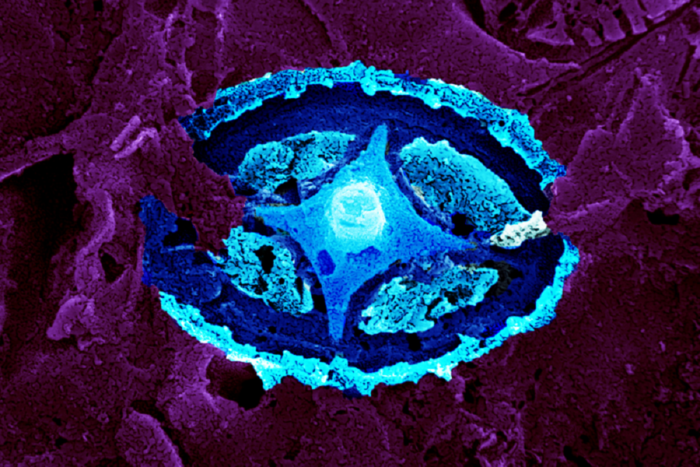Ghost footprints of fossils rewrite the history of the oceans.
The study by an international group of paleontologists coordinated by the Swedish Museum of Natural History and also signed by Silvia Danise, associate of the University of Florence and her colleagues from the Museum of Natural History and University College London, proposes a reinterpretation of resilience of marine plankton to the climatic changes of the past, thanks to the discovery of microscopic traces left by coccolithophorids millions of years ago on the seabed.
To research, online since May 20, Science magazine dedicates the cover of its latest issue.
"Coccolithophorids are single-celled planktonic organisms of microscopic size, 15 times smaller than the thickness of a hair) that abound in the oceans. They play an essential role - explains Danise - in marine ecosystems: they supply most of the oxygen we breathe, they are at the base of marine food chains and help store carbon in ocean floor sediments ".
After the death of the coccolithophorids, the researcher continues "the exoskeleton formed by plates of calcium carbonate is deposited in large quantities in the seabed, fossilizing itself".
Until now, the evidence available to the scientific community documented a decline in the presence of fossil coccolithophorids in correspondence with past global warming events, thus suggesting that climate change and the consequent acidification of the oceans had seriously affected the development of this plankton. in the geological intervals taken into consideration.
But now, unexpectedly, the discovery, thanks to the analysis with powerful scanning electron microscopes on rock samples from the United Kingdom, Germany, Japan and New Zealand, of the footprints left by these fossils "on the surface of pollen and other organic substances. fossilized in the seabed. These footprints - notes Danise - similar to those we leave when we walk on the shore, testify that even during intervals of global warming in the past, coccolithophorids proliferated in the oceans ".
These traces have thus allowed the researchers to document a consistent presence of these microorganisms also in correspondence with three global warming events of the planet which occurred millions of years ago, in the Jurassic and in the Cretaceous.

